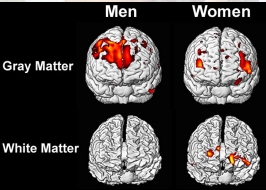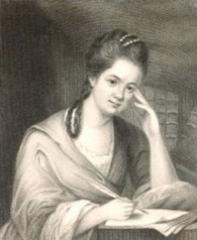Our desire in this short blog series (go here for part 1) is to examine the higher elevation of American women than women in other nations. We seek to do this through commenting on some of the observations of the French historian, Alexis de Tocqueville, and his American contemporary, maternal feminist Lydia Sigourney.
De Tocqueville writes: “Thus the Americans do not think that man and woman have either the duty or the right to perform the same offices, but they show an equal regard for both their respective parts; and though their lot is different, they consider both of them as beings of equal value.”
The Americans were neither sexist nor feminist in their understanding of women and men. There were complementarian. Most of the sexist culture in the world is born out of the blighted understanding that men are superior to women.
 During this time of history, “maternal feminists” came into view. That may sound like an oxymoron from today’s perspective, but the term captures the concerns of these women. They regarded mothers as nurturers and care givers. They believed women have an important and distinctive role both in the home and in society.
During this time of history, “maternal feminists” came into view. That may sound like an oxymoron from today’s perspective, but the term captures the concerns of these women. They regarded mothers as nurturers and care givers. They believed women have an important and distinctive role both in the home and in society.
One of these American women was a founder of the United States, maternal feminist and First Lady Abigail Adams. She famously stated, “Do not put such unlimited power into the hands of husbands. Remember that all men would be tyrants if they could.”
Modern feminists argue that men and women are equal and that a woman establishes her equality when she becomes like a man. In the modern world a single, unfettered male is the ideal! When a woman can have sex 24-7-365 and not be pregnant, she is most equal to a male.
De Tocqueville found that American women did not have to become like men to be equal to men. They were equal in their being, but their gifts, roles and functions were different from men’s … and equally important.
They do not give to the courage of woman the same form or the same direction as to that of man; but they never doubt her courage: and if they hold that man and his partner ought not always to exercise their intellect and understanding in the same manner, they at least believe the understanding of the one to be as sound as that of the other, and her intellect to be as clear.
Both men and women have courage, but the expression of their courage takes different forms.
A woman’s understanding and intellect are as sound as that of a man’s; or perhaps I should say that a man’s intellect and understanding are as sound as a woman’s. But the two are of a different nature. The woman’s judgment is based more on intuition while the man’s, equally as important, is based on reason. The fount of both intuition and reason comes from the Creator himself. Both forms are required to reflect the fullness of the image of God in the human family.
Men and women have the ability to reason both abstractly and intuitively. However the woman’s propensity is the intuitive; the man’s is the abstract.
Human biology reflects this. The brains of males and females exhibit different distributions of gray matter and white matter. Gray matter in the brain is used for handling information. We use our gray matter for processing math and science, for example. Men have 6.5 times more gray matter than women.
 White matter in the brain is used for communications and networking. It is the center of integrating and assimilating information, the biological host of human intuition. Women have ten times more white matter than men. This graphic illustrates the difference in the physical source of the non-physical functions of intuition and reason as seen in male and female.
White matter in the brain is used for communications and networking. It is the center of integrating and assimilating information, the biological host of human intuition. Women have ten times more white matter than men. This graphic illustrates the difference in the physical source of the non-physical functions of intuition and reason as seen in male and female.
The strengths of both females and males are required to establish strong households. A healthy society will realized the essential role women play in the building of the culture.
To return again to de Tocqueville,
Thus, then, whilst they have allowed the social inferiority of woman to subsist, they have done all they could to raise her morally and intellectually to the level of man; and in this respect they appear to me to have excellently understood the true principle of democratic improvement.
What de Tocqueville called the “social inferiority” of women was a reflection of the historic position of sexist societies. Early America may have allowed such mistreatment, but it certainly is not the standard for which a society should strive. In fact, in a principled framework, male and female are considered equal socially, morally, and intellectually.
The true principle of a democratic society is the equality of women and men in the glorious manifestation of their differing gifts, talents, and roles. This is the position established in creation and implied in Genesis 1:26-28.
This principle was articulated and modeled by first-wave (read maternal) feminism. This movement was rooted in both the Old World – England, and the New World – the USA. These early feminists worked to get women and children out of the factories and sweat shops of the growing industrial societies.
 Hannah More (1745-1833) was an English poet, religious writer, philanthropist, social activist and co-conspirator with William Wilberforce to end slavery and reform British Society. More was one of the leaders of the maternal feminist movement in Britain. US maternal feminists included sisters Sarah Grimke (1792-1873) and Angelina Grimke (1805-1879), Sojourner Truth (1797-1883), Susan B. Anthony (1820-1906) and Elizabeth Cady Stanton (1850-1902).
Hannah More (1745-1833) was an English poet, religious writer, philanthropist, social activist and co-conspirator with William Wilberforce to end slavery and reform British Society. More was one of the leaders of the maternal feminist movement in Britain. US maternal feminists included sisters Sarah Grimke (1792-1873) and Angelina Grimke (1805-1879), Sojourner Truth (1797-1883), Susan B. Anthony (1820-1906) and Elizabeth Cady Stanton (1850-1902).
The movement celebrated the virtues of the feminine and the maternal. They applied these virtues first at home then in the larger society to fight for a family wage, the emancipation of slaves, and the suffrage of women, among other social issues.
… to be continued
- Darrow Miller






1 Comment
Jon
November 6, 2015 - 3:47 am????